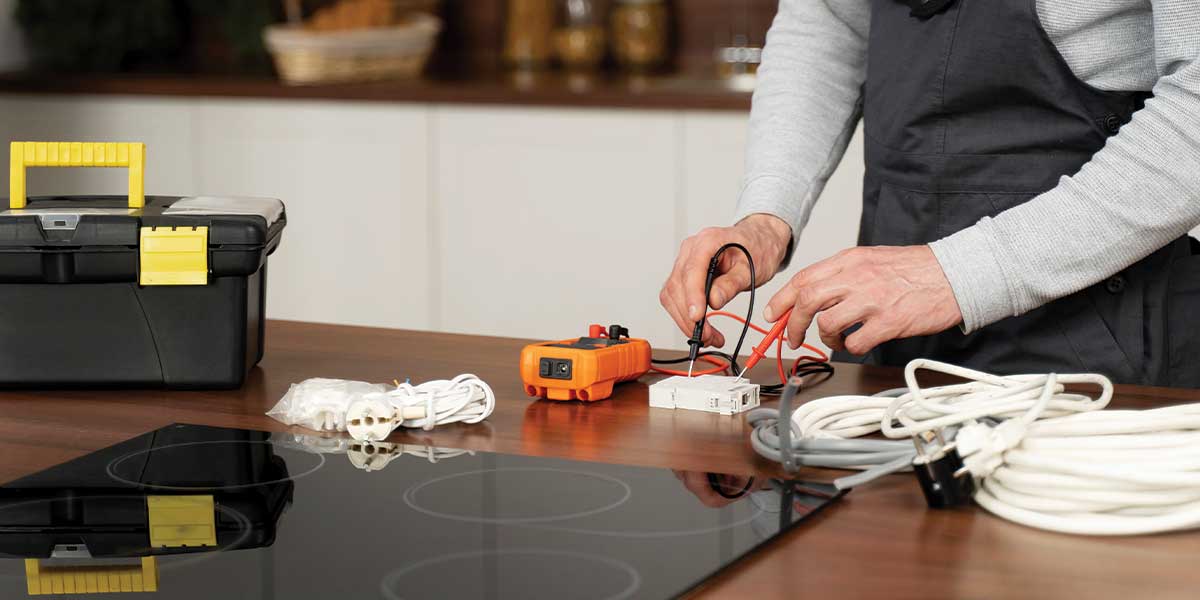When remodeling your home, few projects are as exciting or as complicated as redoing the kitchen. Between rearranging appliances, updating lighting, and ensuring enough outlets for today’s modern gadgets, rewiring a kitchen requires thoughtful planning and professional expertise. At Expert Electric, we understand how overwhelming this process can feel, which is why we’ve put together practical, licensed electrician tips to help you through the journey.
In this guide, you’ll learn what to consider before starting, why rewiring a kitchen is best left to professionals, and how proper electrical planning can enhance both safety and functionality in your dream cooking space.
Why Rewiring a Kitchen Matters
The kitchen is often the heart of a home, but it’s also one of the most electrically demanding rooms. Between high-powered ovens, refrigerators, dishwashers, and countless small appliances, kitchens require more circuits than almost any other part of the house. Outdated or poorly designed wiring can lead to tripped breakers, fire hazards, or even costly appliance damage.
By rewiring a kitchen with the guidance of a licensed electrician, you’ll ensure:
-
Compliance with local building codes and safety standards.
-
Proper placement of circuits, outlets, and switches.
-
Capacity for both current and future appliance needs.
-
A safe, reliable, and energy-efficient electrical system.

Planning the Kitchen Electrical Setup
Before tearing down walls or ordering new cabinets, it’s essential to develop an electrical plan. This includes circuits, outlets, lighting, and dedicated appliance wiring.
Dedicated Kitchen Circuits
Most medium-sized kitchens require at least six dedicated circuits, each with its own breaker. These circuits ensure your appliances can run simultaneously without overloading your system. For a deeper dive into code requirements, check out this helpful guide on kitchen circuit requirements from Family Handyman.
Placement of Outlets
Nothing disrupts cooking more than fighting over limited outlets. Outlets should be strategically placed across countertops to accommodate small appliances like blenders, toasters, and coffee makers. According to modern code, Ground Fault Circuit Interrupter (GFCI) outlets are mandatory in areas near sinks or water sources. This prevents electrical shocks and improves kitchen safety.
Appliance-Specific Wiring
Large appliances like refrigerators, ovens, dishwashers, and microwaves typically require dedicated 240-volt circuits. Planning for these circuits early ensures cabinetry and countertop designs align with your appliance choices. If you plan to move appliances during a remodel, rewiring will be necessary to relocate circuits safely.
Lighting Design and Rewiring a Kitchen
Lighting is more than just practical, it sets the mood and style of your kitchen. When rewiring a kitchen, electricians often recommend incorporating three layers of lighting: task, ambient, and accent.
- Task Lighting – Essential for food prep areas like countertops, sinks, and stovetops. Under-cabinet lighting is a popular choice.
- Ambient Lighting – General illumination for the room. Recessed ceiling lights or pendant fixtures provide overall coverage.
- Accent Lighting – Adds character and highlights design elements such as open shelving, glass cabinets, or architectural features.
By planning lighting circuits and switch placement ahead of time, you’ll avoid frustration later on. Imagine flipping one switch for all overhead lights while having another just for under-cabinet LEDs—it makes your kitchen more functional and intuitive.
Safety Considerations in Kitchen Rewiring
While the design process can be fun, safety should always come first. Kitchens combine electricity with water and heat, three elements that don’t mix well without proper protection. Licensed electricians follow strict codes and best practices to reduce risks such as:
-
Overloaded Circuits – Avoiding too many appliances on one line.
-
Shock Hazards – Installing GFCI and Arc Fault Circuit Interrupter (AFCI) outlets.
-
Fire Risks – Using correct wire gauges and secure connections.
-
Code Violations – Ensuring compliance with Canadian Electrical Code (CEC) and municipal regulations.
Attempting DIY electrical work in a kitchen can quickly become dangerous. That’s why Expert Electric strongly recommends hiring a licensed electrician for all rewiring projects.
Cost Considerations for Rewiring a Kitchen
The cost of rewiring varies depending on your kitchen’s size, age, and design complexity. On average, homeowners can expect to spend $2,000–$6,000 for a complete kitchen rewire. Factors that influence cost include:
-
Number of circuits required.
-
Upgrades to the electrical panel.
-
Relocating outlets and appliances.
-
Specialty lighting or smart home integrations.
Although rewiring may seem expensive, it’s a long-term investment in safety, functionality, and peace of mind. Cutting corners here can lead to costly repairs or hazards later.

Signs Your Kitchen Needs Rewiring
Not sure if your kitchen needs a full electrical overhaul? Here are some red flags:
-
Flickering or dimming lights when appliances run.
-
Frequent breaker trips.
-
Lack of outlets or reliance on extension cords.
-
Outdated two-prong outlets.
-
Warm or discolored outlet covers.
If you notice any of these issues, call Expert Electric to schedule an inspection.
FAQs About Rewiring a Kitchen
1. How long does rewiring a kitchen take?
Most kitchen rewiring projects take 3–7 days, depending on the size of the kitchen and the complexity of the remodel. Larger kitchens with extensive lighting or smart home systems may take longer.
2. Do I need to upgrade my electrical panel for a kitchen remodel?
If your panel is older or already at capacity, an upgrade may be necessary to handle new circuits and modern appliances. Your electrician will assess this during the planning stage.
3. Can I rewire my kitchen myself?
While minor updates like swapping outlet covers may be DIY-friendly, rewiring a kitchen should always be performed by a licensed electrician. It involves high-voltage circuits, code compliance, and safety risks.
4. What’s the difference between GFCI and AFCI outlets?
-
GFCI outlets protect against water-related electrical shocks.
-
AFCI outlets protect against arc faults, which can cause fires.
Both are often required in modern kitchen wiring setups.
5. How many outlets should a kitchen have?
Building codes typically require outlets every 4 feet along countertops, but your needs may vary. It’s best to plan for more than you think you’ll use.
Final Thought: Trust Expert Electric for Kitchen Rewiring
Your dream kitchen deserves more than just a beautiful design, it deserves a safe, reliable electrical system that powers every light, outlet, and appliance without worry. With decades of experience, Expert Electric is proud to be the trusted choice for homeowners across British Columbia.
Don’t risk costly mistakes or hazards with DIY wiring. Call the professionals at Expert Electric to bring your vision to life with safety and precision.
Contact Expert Electric Today
Ready to start your kitchen remodel? Let our licensed electricians handle the hard part so you can enjoy peace of mind.
📞 Call Us: 604-681-8338
📧 Email Us: info@expertelectric.ca
Your kitchen rewire is just one call away. Trust the experts, Expert Electric.


